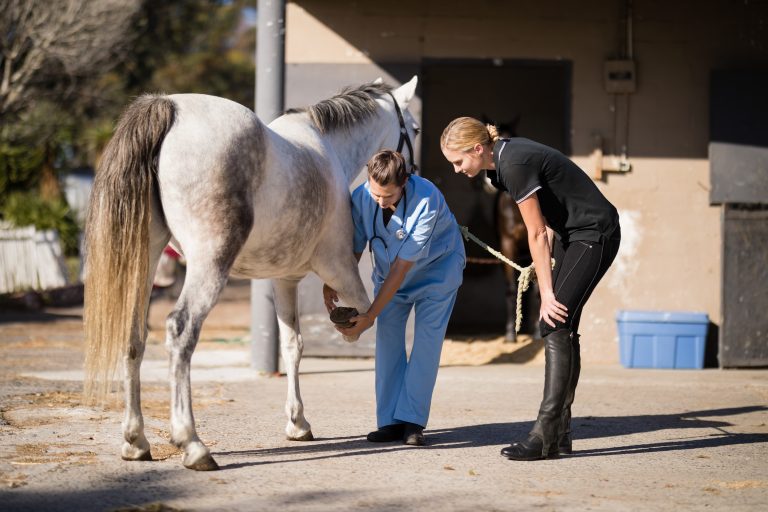
As the equine veterinary profession struggles to attract and retain veterinarians in the field, the experience new graduates have in an equine internship program can markedly influence their decision to stay in or leave the profession.
Data from the 2023 AVMA/AAEP Report on the Economic State of Equine Veterinary Practice indicate that in 2023, 19.6% of new graduates opting to pursue an internship chose an equine internship. This was the second most popular choice behind companion animal internships (73.2%). When asked why they pursued an equine internship, 77.8% chose “to practice better-quality veterinary medicine,” and 69.4% chose “because I feel I need more training before entering veterinary practice.”
Benefits and Shortcomings of Equine Internships
As rules for using live animals in teaching institutions have become stricter, opportunities for learning the basic clinical skills of equine practice in veterinary school have been depleted. In addition, with an increase in private referral hospitals across the U.S., many universities now see mostly complicated cases that are not representative of general practice. Students must work hard to find circumstances where they can develop the basic skills essential for entry-level equine veterinarians. Many employers do not have the time or temperament to mentor new graduates this intensely. In addition, clients’ expectations have become increasingly sophisticated. Well-constructed internships can offer a solution for new graduates to acquire the skills they need for a successful career in equine practice.
Unfortunately, some practices that offer internships have a business model that uses interns as low-paid technicians and provides little formal skill acquisition and mentoring in return. For internships to be the bridge to a great career in equine practice, there must be a mutually beneficial exchange where the practice takes pride in the mentoring relationship and the intern emerges with the skill set and confidence of a much more experienced practitioner.
Advice for Establishing a Successful Equine Internship Program
New graduates expect to work hard, but in return they want the opportunity to learn a plethora of skills under the guidance of experienced veterinary mentors. While an intern’s on-call schedule is likely to be more intense than an associate’s, time off is necessary for mental and physical health. Interns that are alone instead of working alongside other interns often fare worse, as they are not sharing the experience with peers and frequently have a difficult time forming close friendships with the permanent team. Loneliness coupled with exhaustion is a potent brew toxic to emotional well-being.
Setting expectations at the beginning of an internship will make everything run more smoothly. The first week can be the orientation period, during which the intern is introduced to the team and learns about the practice’s policies and procedures. The practice should designate a point person who will always be available to the intern. Practices with interns should also consider offering weekly case rounds, a journal club, and radiology rounds for all doctors to attend.
AAEP Resources
According to Jackie Christakos, DVM, AAEP Board member and co-chair of the AAEP Commission for Equine Veterinary Sustainability’s Internship Subcommittee, “Given the volume of new practitioners who elect to begin their career with more mentorship and guided experience, the AAEP believes this is one place it can influence change for the betterment of equine practice.” In the past year, the subcommittee has produced multiple practice-ready documents, including a best practices handbook, introduction to core competencies as a backbone of competency-based education, and guidelines for student evaluation and comparison of programs. Those resources are available at https://aaep.org/aaep-equine-veterinary-sustainability-initiative/internships.
Mentoring the future leaders of the equine veterinary profession can be one of the most rewarding aspects of practice.
Disclaimer from sponsor: This content is subject to change without notice and offered for informational use only. You are urged to consult with your individual business, financial, legal, tax and/or other advisors with respect to any information presented. Synchrony and any of its affiliates, including CareCredit (collectively, “Synchrony”), make no representations or warranties regarding this content and accept no liability for any loss or harm arising from the use of the information provided. All statements and opinions in this article are the sole opinions of the author and roundtable participants. Your receipt of this material constitutes your acceptance of these terms and conditions.








